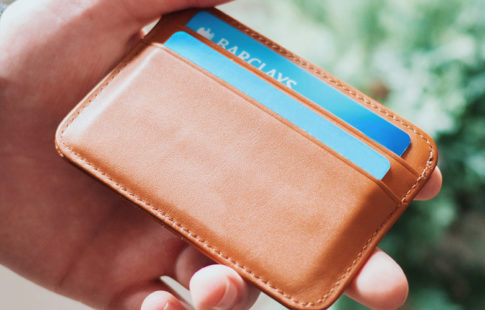For some, high interest debt can be dangerous. Not to be confused with other forms of debt with low interest rates, high interest debt can be tricky. It’s debt that’s quick, easy, and can be expensive.
On the other hand, low interest debt is often necessary and sometimes more manageable; think mortgages, small business loans, etc. Unfortunately, it’s all too easy to find yourself at the bottom of a mountain of high interest debt, and it’s all too difficult to climb the mountain and surmount the debt. Here are a few pointers to avoid and, hopefully, eliminate pesky high interest debt.
Avoid High Interest Debt At All Costs
Of course, the best way to get out of debt is to not get in debt in the first place. However, there are a few good spending practices that everyone can take part in to avoid debt, but sometimes events happen in life that are entirely out of your control that force you to spend money and take on debt.
For example, what if your transmission in your vehicle and your circuit board in your refrigerator both spontaneously fail in the same month? You still need a vehicle to commute to work and you still need a refrigerator to store your food. If you’re following prudent spending and saving tips, hopefully you can avoid putting thousands of dollars on credit cards. But in reality, it can be difficult to keep an emergency cash fund or work an extra job.
These are the types of scenarios that lead hundreds of millions of Americans into high interest debt. The good news is, high interest debt is not the end of the road; there are some ways you can beat it.
What To Do If You’re In High Interest Debt
The first thing to do if you find yourself with any amount of high interest debt is to not panic. Panicking and making decisions based on emotions gets you nowhere.
Instead, stay level-headed and evaluate your options. One of the ways to manage high interest debt is via something known as a “cash-out refinance” on your existing home.
Although it may sound intimidating on the surface, a cash-out refinance can be an effective method of managing high interest debt. If you own a home and have equity, you may be able to use a portion of the equity to consolidate your higher interest debt.
This concept, known as debt consolidation*, is a tried-and-tested method of managing high interest debt. Since the interest charges on items like credit cards is typically higher than mortgages, you may be able to replace high interest debt with low interest debt.
For all of your refinancing questions, check out our step-by-step guide to refinancing or contact a Mr. Cooper mortgage professional today.
*A debt consolidation refinance increases your mortgage debt, reduces equity, and extends the term on shorter‐term debt and secures such debts with your home. The relative benefits you receive from debt consolidation will vary depending on your individual circumstances. You should consider that a debt consolidation loan may increase the total number of monthly payments and the total amount paid over the term of the loan. To enjoy the benefits of a debt consolidation loan, you should not carry new credit card or high interest rate debt.







